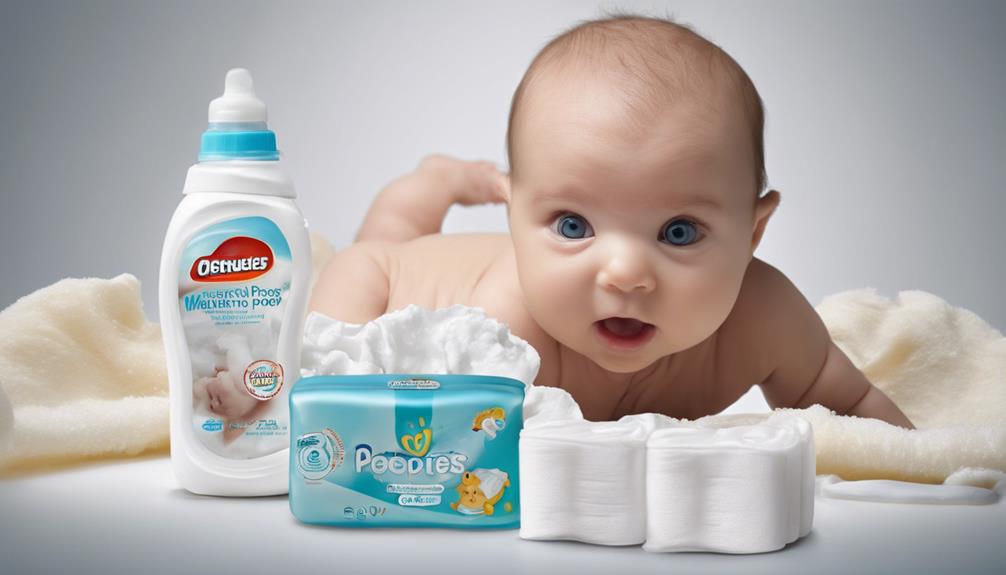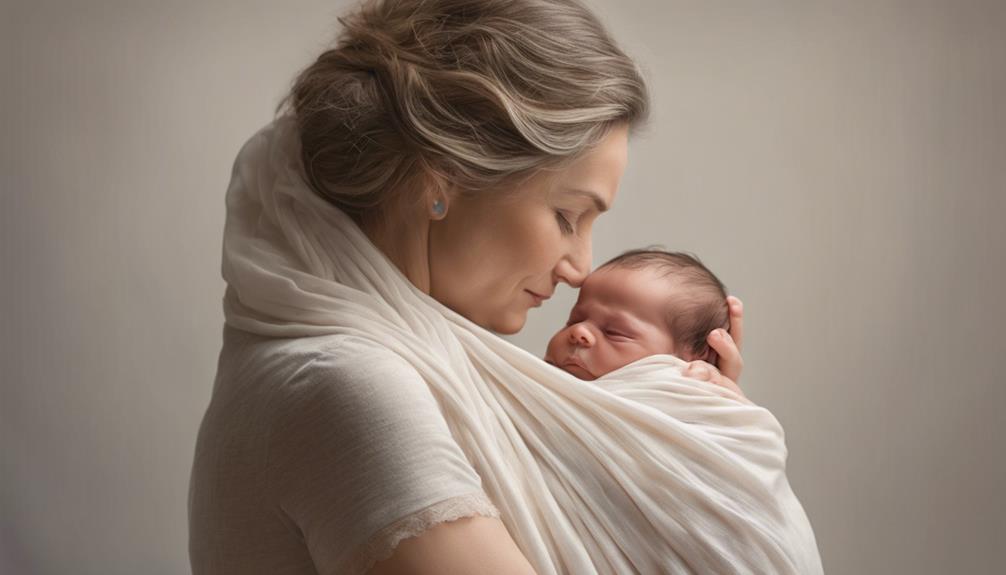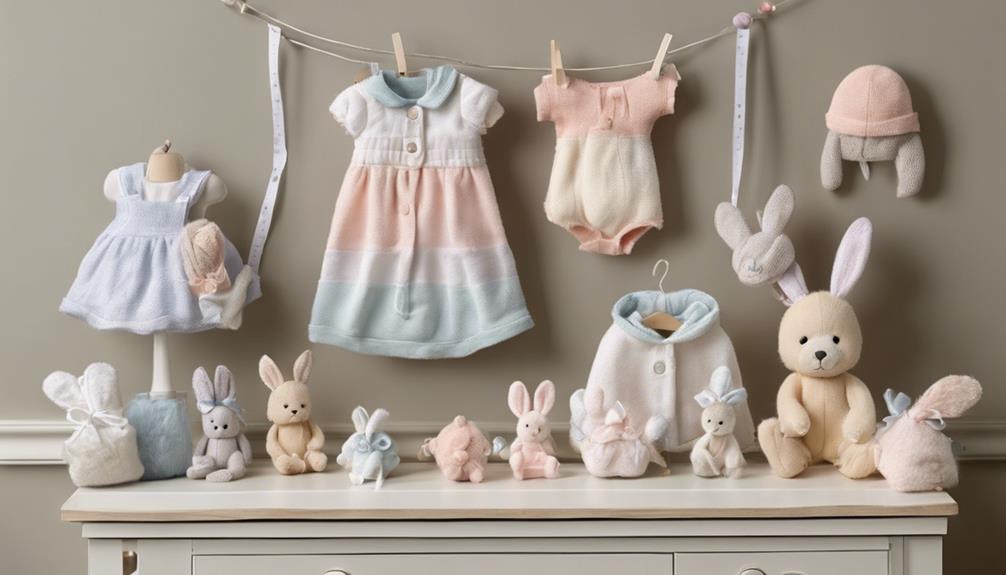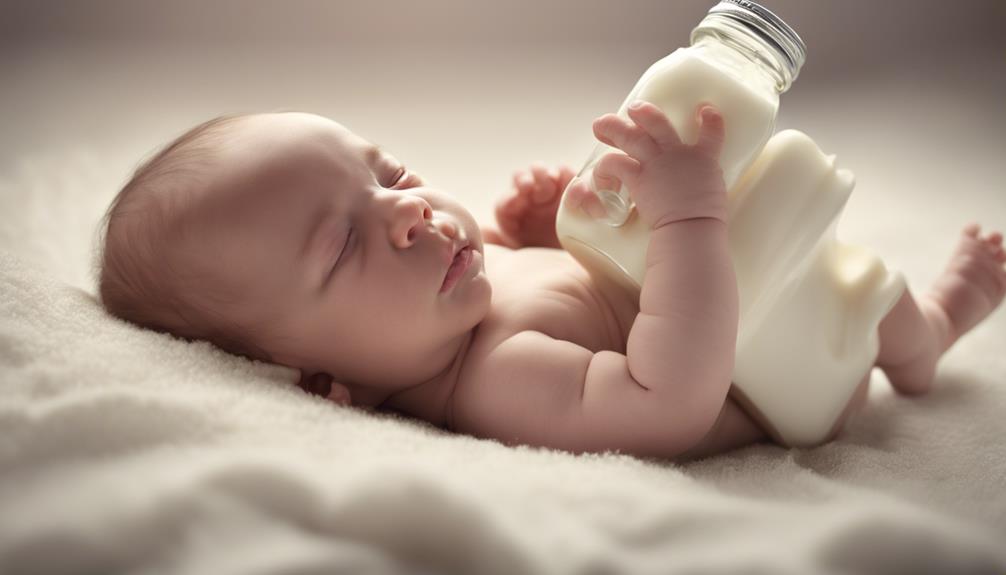If your newborn has hiccups all the time, did you know that up to 70% of babies experience this phenomenon?
While hiccups are generally harmless, finding ways to alleviate them can bring relief to both you and your little one.
Understanding the root causes and implementing simple techniques can make a significant difference in managing these persistent hiccups.
So, let's explore effective strategies to help your newborn find peace and comfort amidst the hiccup episodes.
Key Takeaways
- Burp your baby frequently to reduce hiccups.
- Adjust feeding position to prevent hiccups.
- Offer a pacifier to soothe hiccups.
- Gently rub your baby's back for hiccup relief.
Common Causes of Newborn Hiccups
Newborn hiccups are commonly triggered by various factors such as the baby's developing diaphragm experiencing spasms, fast eating, swallowing air, sudden temperature changes in the stomach, and the Tonic Neck Reflex. These tiny hiccups might seem concerning, but for newborn babies, they're a vital part of development. The diaphragm, a muscle essential for breathing, can sometimes spasm, causing those adorable yet bothersome hiccups.
When your little one gulps down milk too quickly or takes in excess air while feeding, it can lead to hiccups. Additionally, sudden changes in stomach temperature or movements like the Tonic Neck Reflex can also bring on these involuntary contractions. While newborn hiccups generally fade away on their own, if you want to help prevent or stop them, gentle burping, offering a pacifier, or adjusting your baby's position can provide relief. Remember, these hiccups are a natural occurrence as your baby's body learns and grows.
Techniques to Stop Hiccups

If your newborn is experiencing hiccups, there are simple and gentle techniques you can use to help alleviate them. Here are some methods to help stop those pesky hiccups:
- Burp Your Baby: During and after feedings, make sure to burp your baby to relieve hiccups caused by swallowing air.
- Adjust Feeding Position: Try holding your baby upright or changing their feeding position to aid in stopping hiccups.
- Offer a Pacifier: Giving your baby a pacifier may help relax the diaphragm and reduce hiccups.
- Gently Rub Their Back: Help release trapped air bubbles contributing to hiccups by gently rubbing your baby's back.
Remember to avoid using adult remedies like holding your baby's breath or breathing into a bag to stop hiccups in newborns. These simple techniques can help prevent and get rid of baby hiccups without the need for medical intervention.
Preventing Hiccups in Newborns
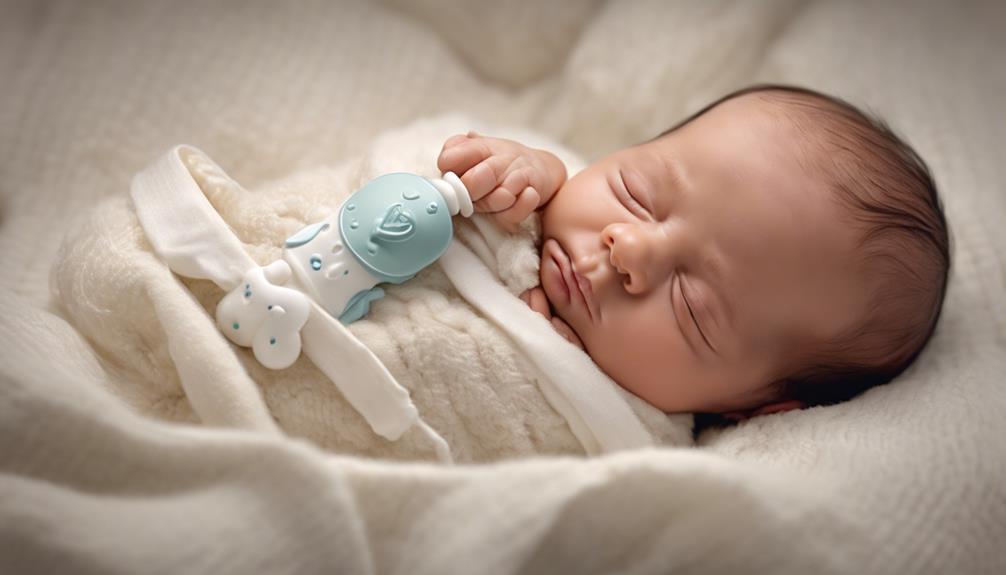
To prevent hiccups in your newborn, focus on implementing simple feeding and positioning practices that can help minimize discomfort and gas buildup. Burping your baby frequently during and after feedings is key to releasing trapped air and reducing the chances of hiccups.
Offering smaller, more frequent feedings can prevent overfeeding, a common cause of hiccups in newborns. Keeping your little one in an upright position after feeding aids in digestion and lessens the likelihood of hiccups.
Create a calm and distraction-free feeding environment to prevent hiccups triggered by stress or excitement.
When to Seek Medical Advice
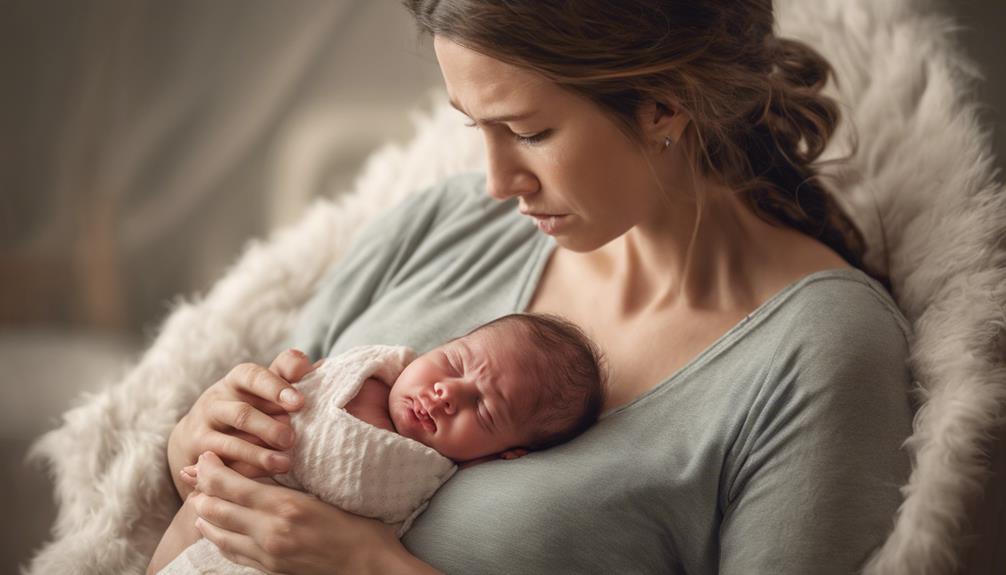
Seek medical advice promptly if your baby's hiccups persist for an extended period or are causing distress. Here are some signs that indicate it's critical to consult a healthcare provider:
- Duration: If your newborn has hiccups that last for more than a few hours without relief, it may be necessary to seek medical advice.
- Discomfort: Watch out for any signs of discomfort or distress accompanying the hiccups, as this could signal an underlying problem.
- Feeding and Sleeping: If the hiccups are interfering with your baby's feeding, sleeping, or overall well-being, it's crucial to consult a pediatrician.
- Unusual Symptoms: Be alert for any unusual symptoms in conjunction with the hiccups, as prolonged hiccups coupled with other signs could indicate a cause for concern.
Final Tips for Hiccup Relief

For a gentle and effective approach to relieving your newborn's hiccups, consider these final tips. Hiccups are usually harmless and can be managed at home with simple remedies. Always remember to seek professional medical advice if you have concerns about your baby's hiccups. Here are some additional tips to help your little one:
| Treat and Prevent | Remedies for Hiccups | Babies Get Hiccups |
|---|---|---|
| Burp your baby frequently during feedings to release trapped air bubbles. | Gently rub your baby's back to help alleviate hiccups caused by swallowed air. | It's common for babies to get hiccups, especially after feeding. |
| Offer a pacifier to help relax the diaphragm and potentially stop hiccups. | Change your baby's position, like holding them upright, to aid in hiccups relief. | Avoid adult remedies and always use gentle methods to treat hiccups. |
Remember to keep our content on hiccup relief safe and informative. Gripe Water can also be a helpful option but consult with your pediatrician before use.
Frequently Asked Questions
How Can I Help My Newborn Get Over Hiccups?
You can help your newborn with hiccups by burping them often, offering a pacifier, changing their position, and gently rubbing their back. Avoid adult remedies and focus on safe ways to relieve your baby's discomfort.
Is It OK to Lay Baby Down With Hiccups?
It's totally fine to lay your baby down with hiccups. Hiccups don't affect breathing. If they persist or bother your little one, reach out to a pediatrician for guidance. Keep calm, most hiccups are harmless!
Is It Normal for Newborns to Have Hiccups Everyday?
Yes, it's totally normal for newborns to have hiccups every day. Their developing diaphragm causes this, and it's a sign of healthy development. Don't worry; it's just their little bodies adjusting.
What Is the Best Position for Baby Hiccups?
When your newborn has hiccups, hold them close against your chest. This cozy upright position eases pressure on their tiny diaphragm, often stopping those pesky hiccups. Remember, always support their head and neck for comfort and safety.
Conclusion
You've learned how to manage your newborn's hiccups with simple techniques like burping and feeding adjustments. Remember, hiccups are usually harmless and a sign of healthy development.
Did you know that newborns hiccup on average 1-4 times a day? Understanding why hiccups happen can help you feel more confident in caring for your little one. Trust your instincts and always seek medical advice if needed.
You're doing a great job, parent!


